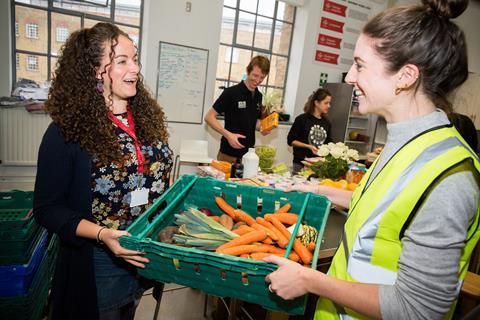Initiative hopes to strengthen relationships between farmers and food charities
The government has unveiled a new £15 million grant to help thousands of tonnes of food – and fresh produce in particular – be passed to redistribution charities rather than going to waste.

An estimated 330,000 tonnes of edible food is either wasted or repurposed as animal feed before leaving farm gates every year, the government noted, with transport from farms to charities cited as a major barrier to redistribution.
To strengthen the links between farms and charities, the new scheme will see grants starting from £20,000 made available to the not-for-profit food redistribution sector in England. The cash will help organisations like homeless shelters, food banks and charities fight hunger, the government said.
It will help British farmers to deliver good food for those that need it and reduce the costs they face when dealing with waste, while also increasing the capacity and capability of the redistribution sector to take on farm surplus.
Circular economy minister Mary Creagh said: ”Nobody wants to see good food go to waste – especially farmers who work hard to put food on family tables across the country. Our new fund will help the charitable sector to work more closely with farmers, helping to find new opportunities to get their world-leading produce to those most in need within our communities.”
In a joint statement, Charlotte Hill, CEO of The Felix Project, and Kris Gibbon-Walsh, CEO of FareShare, said: ”After years of campaigning by food redistribution charities, we are thrilled to see this fund come to fruition. We are pleased that the government has recognised that too much food goes to waste on our farms, and that it should be redistributed to feed people who need it.
”We look forward to acting quickly with the government, the charity sector, and farmers to maximise the impact of this initiative during the British growing season, ensuring surplus food reaches as many people as possible. We have a proven model which funds farmers to redistribute their unsold food, which means that together, we can take meaningful steps toward achieving a zero-waste Britain.”



